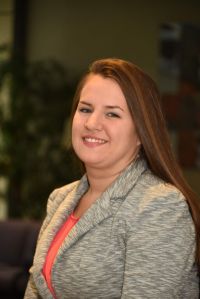Family detention is a pressing issue because of the psychological harm created by detaining children. One of the three family detention facilities in the U.S. is located in Berks County, Pennsylvania.
The Social Justice Lawyering Clinic has worked with Juntos, a member of the Shut Down Berks Coalition, to try and get families released. The Coalition’s work has focused on getting Pennsylvania to revoke the state license for the facility, which was accomplished in January.
However, Berks appealed the loss of its license, and the facility remains open pending the appeal. And even if Berks is eventually shut down, the federal government is continuing to look for ways to open new facilities in other jurisdictions.
Now, Juntos seeks to broaden the conversation about family detention by showing that it violates international human rights norms. On September 17, the U.S. Human Rights Network convened a Human Rights Tribunal in Philadelphia, providing an opportunity for people directly impacted by human rights violations to testify before a group of jurists comprised of U.N. officials and a member of the Philadelphia City Council. We helped to frame the issues in terms of international human rights law.
Jack Farrell, a third-year law student, states: “Families and children are held arbitrarily, in violation of their due process rights and under prison-like conditions that fail to meet international human rights standards. Closing Berks is imperative for the sake of American domestic policy and human dignity.” For the tribunal, Jack, along with his partners, created a new fact-sheet summarizing the human rights violations at Berks.


 Newly graduated and on her way to a judicial clerkship, Emily Bock was
Newly graduated and on her way to a judicial clerkship, Emily Bock was  Master Sante Reaves, Ms. M, Ms. M’s son, Malcolm Ingram 3L and Prof. Sarah Katz.
Master Sante Reaves, Ms. M, Ms. M’s son, Malcolm Ingram 3L and Prof. Sarah Katz.